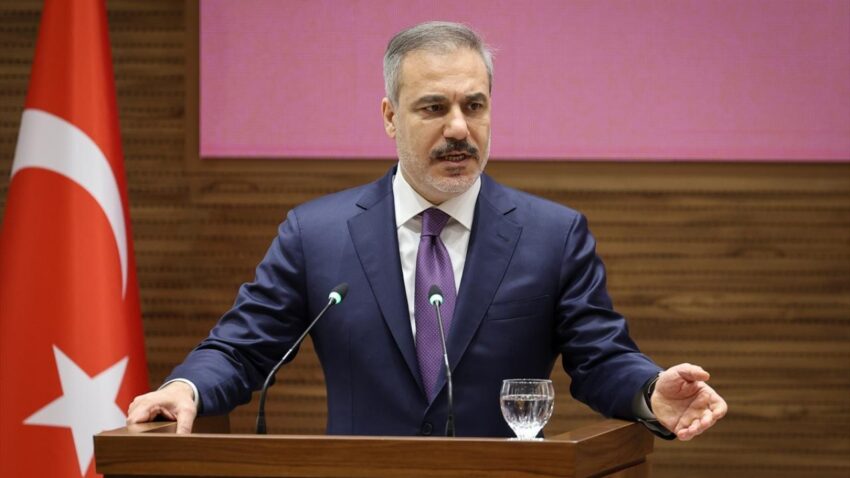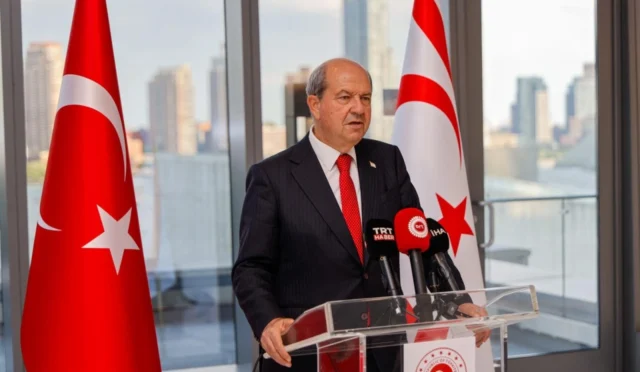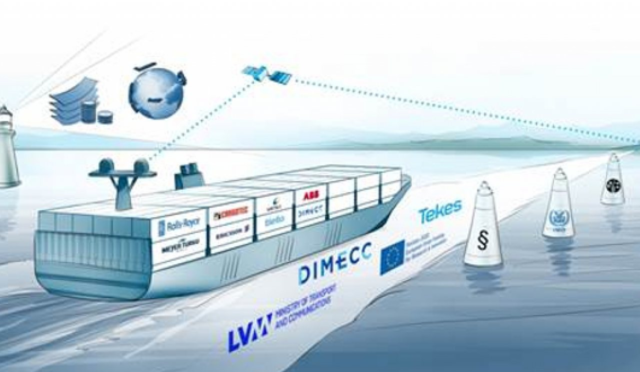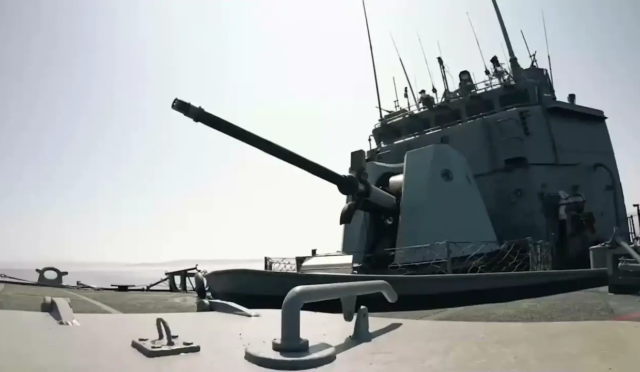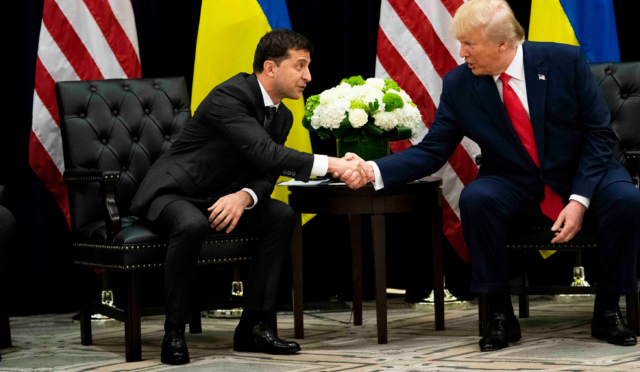Ankara, April 24, 2025 – Turkish Foreign Minister Hakan Fidan held a meeting with his Norwegian counterpart, Espen Barth Eide, in Ankara, where the two discussed a range of bilateral and international issues. Following their talks, the ministers addressed the press in a joint conference, touching on topics including the Gaza crisis, European security architecture, and recent developments involving Central Asian states in the context of Cyprus.
Responding to a question about the actions of Central Asian countries regarding Cyprus, Fidan emphasized Turkey’s commitment to maintaining strong ties with the Turkish world. He noted that certain external actors are attempting to exploit these developments to create divisions. “Some circles are eager to see us publicly debate this issue in order to sow discord,” Fidan said. “However, we adhere to the principle of addressing family matters privately. Those hoping to manipulate and fracture the unity of the Turkish world will not succeed.”
Fidan underscored that the Turkish world remains steadfast in its support for the Turkish Republic of Northern Cyprus (TRNC). “The Turkish world, as a cohesive entity, will continue to stand by the Turkish Cypriots,” he stated, adding that efforts to cast a negative light on the Turkish government’s stance would also fail. He reaffirmed Turkey’s clear position and unwavering direction in supporting the Turkish Cypriot cause.
Gaza Crisis: A Call for Immediate Humanitarian Action
During the press conference, Fidan expressed deep concern over the ongoing crisis in Gaza, describing Israel’s actions as “atrocities” unfolding before the world’s eyes. He highlighted that humanitarian aid has been blocked from entering Gaza for over 50 days, condemning the use of starvation as a weapon, a political bargaining chip, or a tool of punishment. “The uninterrupted and sustained delivery of humanitarian aid to Gaza must be ensured immediately,” Fidan urged.
He stressed that no nation is above international law, calling for an immediate end to Israel’s actions, which he described as contrary to both legal standards and human conscience. Fidan’s remarks underscored Turkey’s firm stance on the need for justice and humanitarian relief in the region.
Central Asia and European Interests
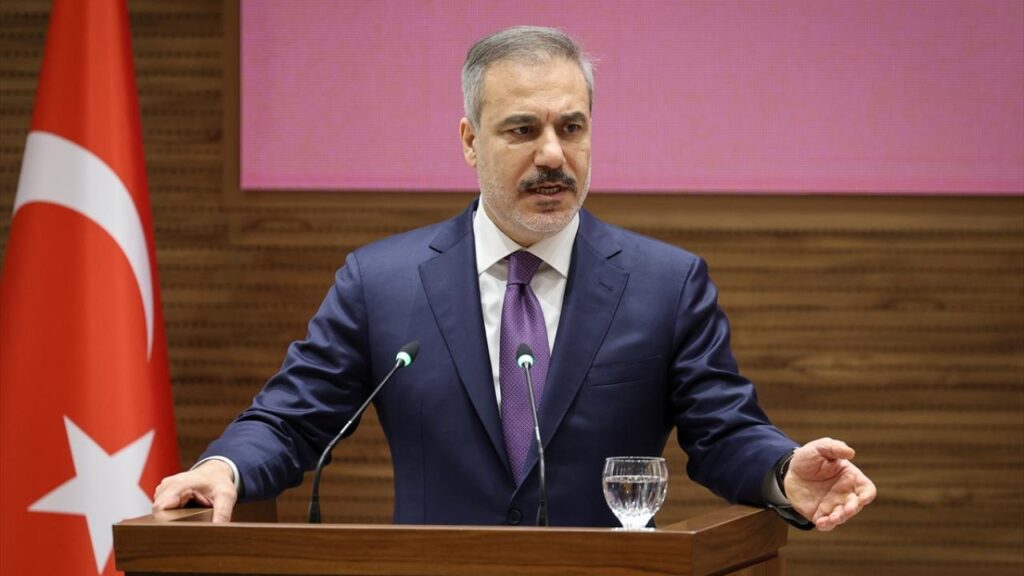
Commenting on the growing global attention toward Central Asian states, Fidan acknowledged that their progress and development have caught the eye of international actors, including the European Union (EU). While he described this interest as understandable, he cautioned that certain areas show signs of the EU attempting to exploit these relationships. “We are closely monitoring these developments in all their dimensions and taking necessary steps,” he said, noting ongoing dialogue and coordination with Turkey’s regional partners.
Fidan reaffirmed Turkey’s commitment to advancing the ideals of the Turkish world, stating that Ankara would continue to act in alignment with this vision. He emphasized the importance of unity and collaboration among Turkish states to counter external efforts aimed at creating rifts.
European Security Architecture and NATO Dynamics
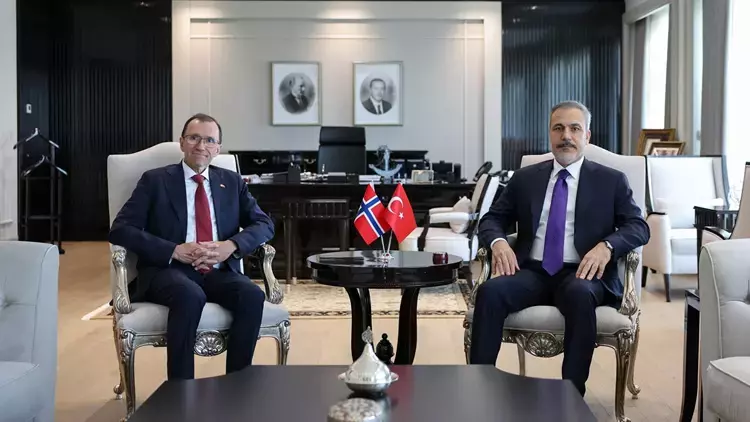
The discussions with Eide also covered the evolving European security landscape, particularly in light of the Russia-Ukraine war and shifts in U.S. policy under its new administration. Fidan pointed out that Turkey has long advocated for a unified NATO security framework that avoids divisions between EU and non-EU NATO members, such as Turkey, Norway, the United Kingdom, Albania, and Montenegro. “We have consistently emphasized that NATO’s security architecture should be singular, without distinctions between EU and non-EU members,” he said.
Fidan noted that the EU has launched initiatives focused on defense and security, particularly in the defense industry, which are expected to shape Europe’s security priorities over the next decade. These initiatives include concrete negotiations on funding and meeting defense needs. However, he warned that a fragmented approach, such as categorizing countries into EU members, non-members, candidate states, or strategic partners, could complicate the broader European security framework.
Should the U.S. adjust its military posture in Europe, Fidan predicted that new debates on European security would likely emerge. He stressed the importance of Europe taking greater responsibility for its own security, stating, “As members of the broader European family, it is primarily our duty to ensure the peace and security of this geography.”
Turkey and Norway share significant alignment on these issues, Fidan added, noting that their defense industry cooperation is thriving. He cautioned against divisions within Europe, such as those between EU and non-EU states, which could encourage alternative alliances. “While we develop our own defense strategies, we must prioritize securing our own neighborhood,” he said, warning against over-reliance on external powers for Europe’s protection. “A strategy that assumes others will always safeguard our region is not sustainable.”
Norwegian Foreign Minister’s Remarks
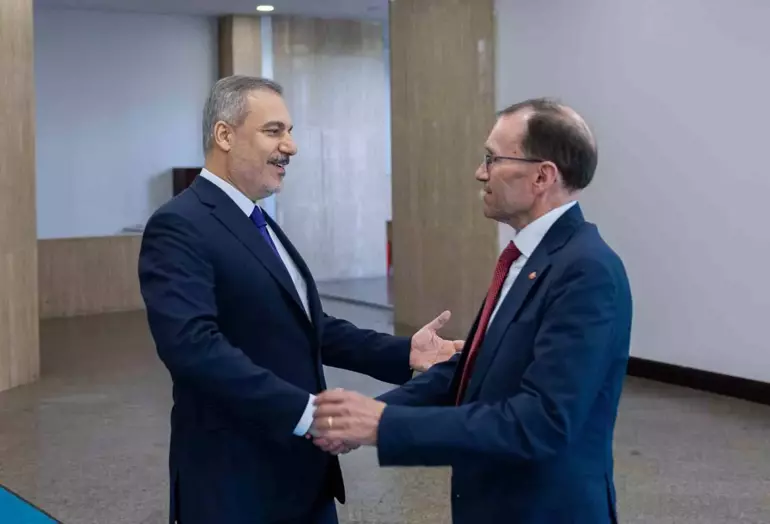
Norwegian Foreign Minister Espen Barth Eide described the meeting as highly productive, emphasizing the strong and growing ties between Norway and Turkey. He highlighted their shared perspectives on key global issues, including the Russia-Ukraine war, where both nations support Ukraine’s sovereignty and territorial integrity. Eide stressed the need for a lasting peace agreement and expressed concern about the potential for reduced U.S. involvement, which would require Europe to take on greater political and economic responsibilities.
On Syria, Eide called the establishment of a new government a “hopeful development.” Recounting his recent visit to Damascus, where he met with Syria’s current leader, Ahmed Shara, Eide underscored the importance of fostering national unity and preventing the country’s fragmentation.
Eide also reaffirmed Norway’s recognition of Palestine, emphasizing its commitment to a two-state solution. “We believe this recognition is crucial to convincing the Palestinian people that a two-state solution is viable,” he said, expressing satisfaction with Norway’s close cooperation with Turkey on this issue.
Regarding European security, Eide noted that Norway, while not an EU member, has signed strategic agreements with the EU in defense and security. These agreements allow Norway to participate in Europe’s defense initiatives, including preparations for 2030. He advocated for similar arrangements with Turkey, stressing the importance of inclusive participation by all European and NATO countries. “The EU’s growing focus on defense is welcome, but it must remain open and collaborative,” Eide said.
A Unified Turkish World
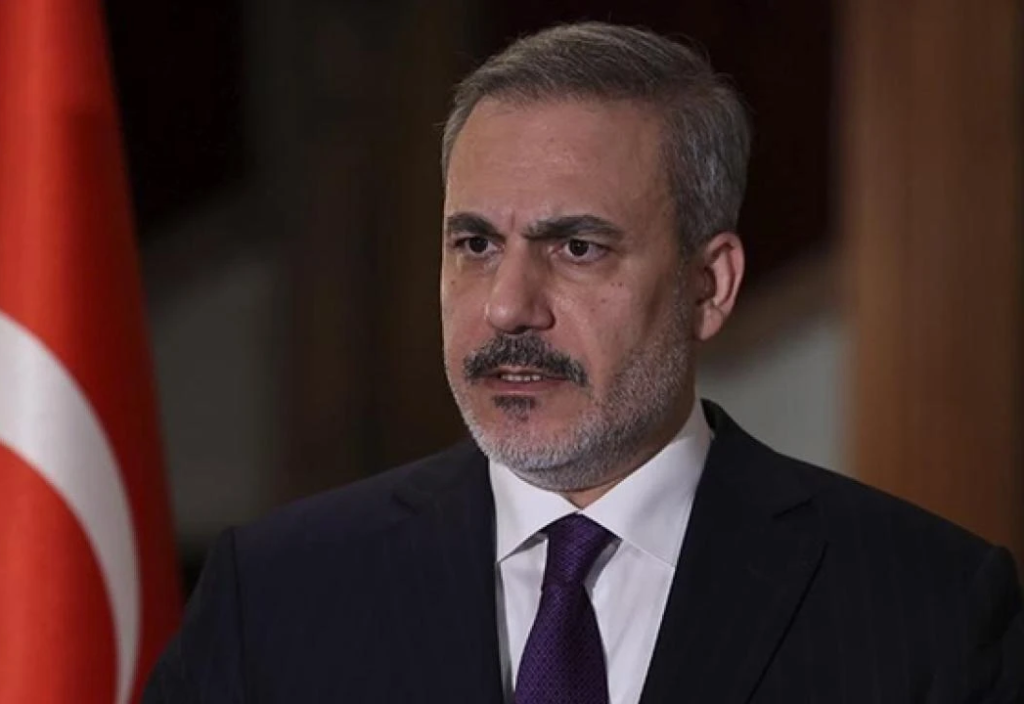
In closing, Fidan reiterated Turkey’s resolute stance on the Cyprus issue, emphasizing that the Turkish Cypriots are an integral part of the Turkish world. “This reality will never change,” he declared. “The Turkish world will continue to stand united in support of the Turkish Cypriots, and we will pursue our policies with patience and determination.”
Fidan expressed confidence that a shared commitment to unity and solidarity would further strengthen the Turkish world, ensuring that external attempts to create discord would ultimately fail. The press conference concluded with both ministers reaffirming their commitment to deepening bilateral ties and addressing global challenges through cooperation and dialogue.
